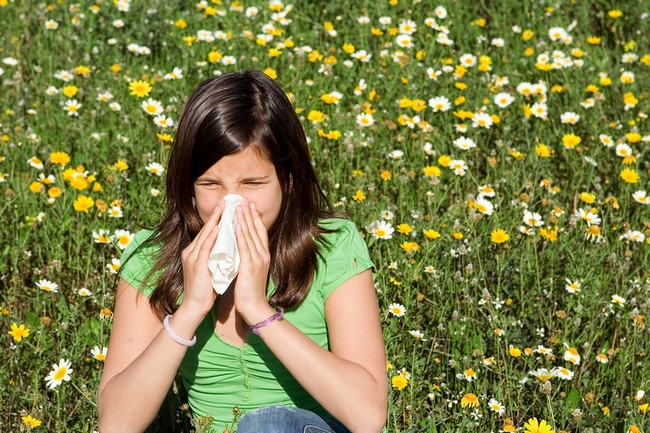- Make It Yourself Lavender Heart-Shaped Bath Bombs!
- 20 Things You Never Knew About “Down There”
- 12 Best Foods For Those Suffering From Arthritis Pain
- 12 Personal Hygiene Mistakes Almost Everyone Makes (Mom Never Told You About #4!)
- 15 Medicinal Plants And Herbs From The Cherokee People
- 12 Mind-Blowing Benefits Of Drinking Coconut Water During Pregnancy
- 12 Outstanding Winter Foods That Won’t Fatten You Up Like A Christmas Turkey
Oral Allergy Syndrome 6 Ways to Avoid an Itchy Tingling Mouth

Photo credit: bigstock
If you suffer from those seasonal allergies you know how annoying it is to have those itchy eyes and the itchy nose that goes along with all that sneezing but for some people, in addition to those symptoms, they also get an itching on their lips, down their throats, and inside their mouths.
It takes some people a few years to realize that it’s when they eat certain foods that these symptoms occur. This condition is called pollen associated food allergy syndrome, or more commonly, oral allergy syndrome (OAS). This happens because the same proteins that is in pollen, the ones that cause those allergic reactions, such as ragweed and grass, are also found in some fruits and vegetables.
For some people, soon after eating these raw fruits and vegetables, sometimes even after eating some nuts and spices, their immune systems recognizes a kind of similarity between the protein in the pollen and the protein in these foods, and they experience an allergic reaction. Cross reactivity is another name for this.
Sometimes the season does not matter. In America, the late summer and fall are the time many people suffer from allergies to ragweed pollen. During that same time of year, they may feel that itchy mouth or throat soon after they eat melon, sunflower seeds, bananas, or cucumbers. However, there are still others that experience these types of symptoms no matter what time of year it is. Still others find that during allergy season their reactions to these foods are worse but they still experience some discomfort from these foods the remainder of the year.
You can lessen your symptoms without a shot of epinephrine. Here are the top 6 tips to help those with hay fever who also suffer from OAS.
1. Be aware of common symptoms
Common symptoms include an itching and tingly feeling inside the mouth and throat. Some have a slight swelling of the lips. These symptoms can occur within seconds, or sometimes several minutes, after eating or, occasionally, even just putting the food in their mouths. It’s a fairly quick reaction. For some, the swelling of the mouth, lips, even the tongue is so severe that eating or swallowing might be uncomfortable. Find out 5 signs that you have a food allergy or sensitivity.
2. Know the worst offenders
For most people, almonds, hazelnuts, apples, peaches, plums, cherries, and carrots are the most common culprits. For those who are allergic to birch pollen, you might find that apples are your worst nightmare, but you might also react to fruits with pits such pears or celery, because these are botanically similar to birch. For the majority of people, it’s simply one or two foods that will cause you the worse symptoms.
If you are sensitive to the pollen from ragweed, you will find that melons such as honeydew, cantaloupe, or watermelon, in addition to cucumbers, zucchini, bananas and kiwi, will give you these annoying symptoms.
For those with grass allergies, in addition to melons, you might find you are also bothered by oranges and tomatoes.
3. Don’t ignore symptoms
Although most symptoms are short lived and usually go away in a few minutes, or perhaps an hour, but this is an important time for you to notice what you were eating ( or still are) so you can take an antihistamine to help relieve that itchy feeling and then avoid that food in the future. See more about allergies in America.
Continue to Page 2
































